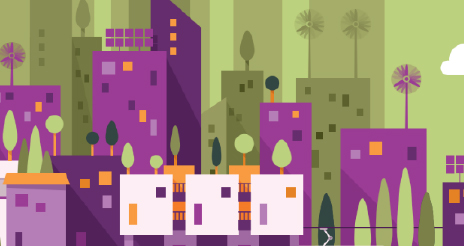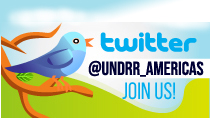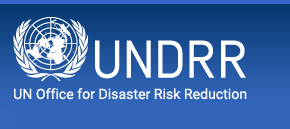- Our Mandate
- Mission and Objectives
- UNDRR in the UN
- Work Programme & Annual Reports
- Results Based System
- Work Partnerships
- Headquarters - Geneva
- SG-UN representatives for DRR
- Regional Office – The Americas and the Caribbean
- Head of the Regional Office – The Americas and the Caribbean
- What is Disaster Risk Reduction?
- What is the International Strategy?
- History of UNDRR
Call 2016-2017: City-to-City Learning Exchange on Resilience Building

By: UNDRR – The Americas
The Sendai Framework for Disaster Risk Reduction 2015-2030 emphasizes the need to strengthen capacities and capabilities for management and implementation at different levels of governance as a necessary condition for progress related to disaster risk reduction and its associated losses at a global, regional and local level. It specifically recognizes the important role of national and sub-national levels as well as emphasizes the need to empower local authorities and communities in order to effectively address the challenges of sustainable development.
City to City Learning
The objective of City-to-City learning is to build greater institutional and human capacity required to accelerate progress towards disaster resilience. The distinction from other capacity building services, such as technical training, is that cities will learn together. The promise for cities is to become learning organizations by engaging in city learning networks. There are three levels of learning:
Reactive learning in the search of lessons learned by other cities allows for the discovery of existing knowledge. Proactive learning is based on joint knowledge and takes place during knowledge sharing activities between peers. The third level is meta-learning and refers to the education from the learning process that ensure the capacity to learn; Continuous monitoring and evaluation is important at this stage.
Why engage in City-to-City learning?
Cities nowadays are facing unprecedented challenges and opportunities. Responding to these challenges, and seizing the opportunities, is placing new and complex demands on decision makers. In order to keep up the pace and to cope with the rapid changes occurring in cities of today accelerated learning through ‘learning exchanges’ (peer learning) is indispensable.
With the objective of supporting the long-term learning strategies, it is increasingly important for urban areas to be involved in city networks
City-to-city learning exchanges accelerate the adoption of innovative and transformational practices that enable a city to make deliberate and strategic change. Learning new practices can make a big difference as well as contribute towards the wider effort of a modern day city adapting to the complexities that risk that combined with the influences that climate change and urbanization bring to the equation, ensures sustainable growth and prosperity in cities.
Call to present proposals for the City-to-City learning exchange programme 2016-2017.
UNDRR, in the framework of the Global “Making Cities Resilient Campaign: My city is getting ready!” Calls present proposals for the City-to-City learning exchange of 2016-2017. This initiative seeks to integrate the lessons learned and the experience gained from exchanges between governments of the different regions, carried out within the framework of disaster risk reduction.
Innovation has given rise to results and / or concrete products that are the basis of learning exchanges. This innovation generates direct benefits for local administrations and as a consequence these results become relevant and replicable at other levels. Global “Making Cities Resilient Campaign”: My city is getting ready!” Is an invitation to leaders of local governments to reaffirm their commitment to disaster risk reduction and building resilience in their communities (for more information visit: https://camp-10-15/)
The activities of the city-to-city exchange are possible thanks to the contribution of governmental and donor institutions. This call in particular is supported by the General Directorate for Cooperation and Development of the European Commission.
The call has two objectives: To promote dialogue and exchange between local governments participating in the Resilient Cities Campaign and to highlight local efforts in order to find and implement innovative solutions to meet the challenges of sustainable development related to the risks associated with natural hazards.
How to apply to the call:
|
Please take into consideration that the letters of support must be signed by the participating local authorities. Applications which do not use the format included in Annex 1 or do not include letters of support from the authorities, will not be accepted.
More information here:
Resilient Cities Campaign Website
Fully funded City-to-City Learning Exchange Opportunities
Follow the UNDRR news online:
 Now we have twitter account @UNDRR Américas y el Caribe
Now we have twitter account @UNDRR Américas y el Caribe
JOIN US!
Tweets por el @UNDRR Américas y el Caribe
